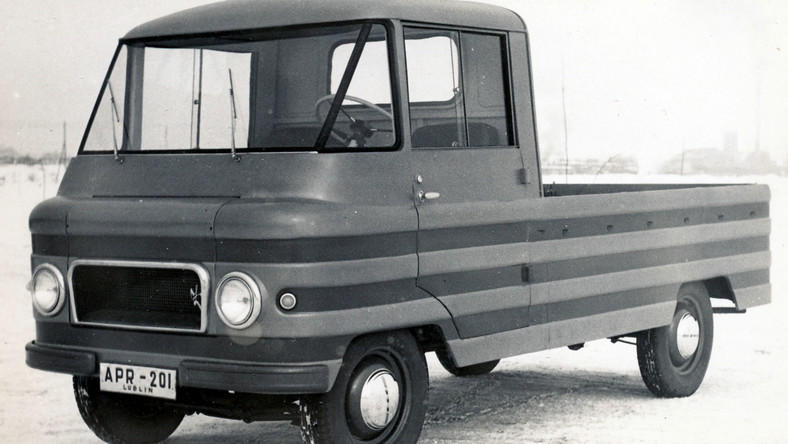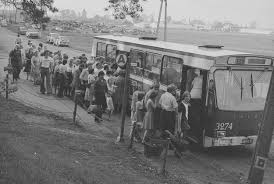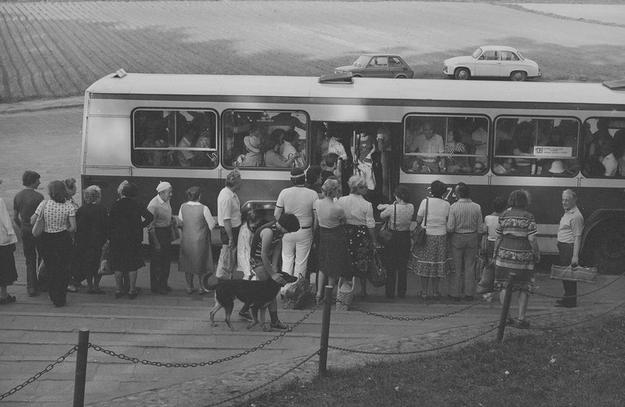What about clothing, shoes, and such?
When Gierek`s rule ended in 1980, the loans amounted to 22 billion dollars. When communism fell in 1989, the loans were over 40 billion.
The crisis of late 1970s and early1980s toppled Gierek and caused an acute deficit of consumer goods, even basic ones. People traveled from city to city buy children shoes. Clothing was available but nobody wanted to wear those cheap (cotton was imported) plastic textiles becaue they resembled rural fashion of previous decades.
Why wasn't it possible to buy certain simple food items without lining up for half a day?
Loans had to be paid somehow, so communists exported surpluses of whatever was produced in Poland. But eventually there were no surpluses cause the economy was in a very bad state - efficiency was tragic, there were shortages of energy and materials.
If one is really interested, there are dozens of films on youtube. Despite their customs woith censorship, communists openly admited there was a crisis and they allowed to talk about shortages in media. Paradoxically, compared to state propaganda in PiS controlled media today, communist media lied less. It is sad but true.
E..g, why was there a shortage of pots, pans, etc?
See a film from one factory which made that stuff - people work in extremely harmful conditions without any protection. Look what they are doing at 1.20 - manually put in and take out metal buckets into that chrome liquid.
youtube.com/watch?v=mVyeEmdSshA
The 1988 film about Jaruzelski`s visit to a metal parts factory, they complain about the poor quality of steel they get. Look at the old machinery they work on.
youtube.com/watch?v=YeLNoV3XqZM
Jaruzelski`s visit to a local supermarket, people complain about shortages. Famous words:
What? It is natural that meat is unavailable. But potatoes, too??? Potatoes were out of stock cause state farms were innefficient (no spare parts for farm machines) and individual farmers prefered to sell their produce in open air markets. Later in the film a factory worker complains that the machinery he works on is too old and often breaks down.
youtube.com/watch?v=gcrOGaugfjE
And so on and so on. I could show you many more.
because the black market demanded hard currency.
The black market was controlled by communist secret police, that was one of sources of hard currency for the system, that is why it existed at all - if communists wanted, they could get rid of it within a week. But they didn`t.
Perfectly illustrated in a gangster comedy Sztos 2. Try to find it with English subtitles.



